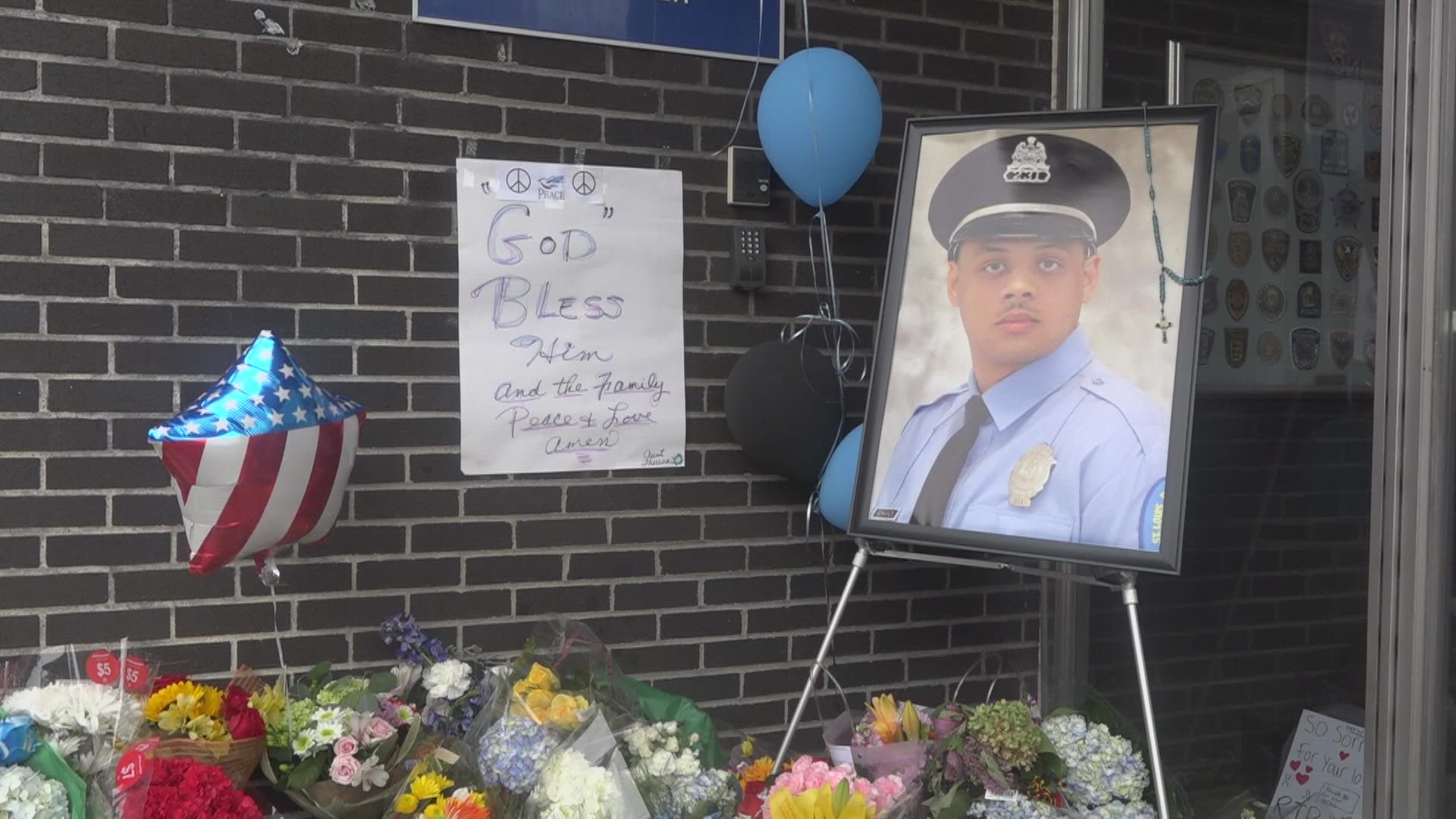ST. LOUIS — The family of slain St. Louis Police Officer Tamarris Bohannon is in for an even longer wait for their day in court with the man who killed him more than two years ago.
Attorneys for Bohannon’s alleged killer Thomas Kinworthy entered a plea of not guilty by reason of mental disease or defect Monday – more than 19 months after they sought a private mental health evaluation.
St. Louis Circuit Attorney Kim Gardner’s Office told Judge Elizabeth Hogan Friday it intends to seek a mental health evaluation of its own through the Department of Mental Health.
The I-Team reported in November that evaluations from the Department of Mental Health are taking longer due to an increase in demand for evaluations. Bohannon’s widow, Alexis Bohannon, believes Gardner’s office should have objected to the defense’s numerous delays in getting a private evaluation completed.
On Aug. 30, 2020, police said Kinworthy broke into a home in the Tower Grove neighborhood, ordered the couple who lived there to leave and then shot two police officers who responded. Bohannon, a father of three, was shot in the head and died from his injuries days later. A second officer was shot in the leg as he tried to render aide to his fellow officer.
Bohannon’s parents, Al and Elizabeth Bohannon, attended Friday’s hearing in which the judge told Assistant Circuit Attorney Marlo Lamb to file a motion seeking to expedite Kinworthy’s evaluation because, “It’s already been over a year and the family is understandably already very frustrated.”
Following the hearing, the Bohannons said they were happy to hear the case moved forward instead of seeing it continued again.
“We want justice, and we understand justice takes time,” said Al Bohannon.
Elizabeth Bohannon said she has been frustrated by the delays as well but doesn’t want the case to be rushed and leave room for appeals or mistrials.
Mental health evaluation delays
The Missouri Department of Mental Health has seen a 29% increase in the number of requests for mental health evaluations in just the past year. In fiscal year 2022, the Department of Mental Health’s Certified Forensic Examiners completed 872 pretrial evaluations; there are currently 275 evaluations pending across the state, according to the department.
State-ordered evaluations are supposed to take 60 days, but the court can extend the timeframe. Right now, the Department of Mental Health said evaluations are getting completed anywhere between 60 to 120 days.
The Department of Mental Health refused the I-Team’s request for an interview but wrote:
“The reasons for the increase in pretrial evaluations include, but are not limited to, an increased awareness of behavioral health issues by law enforcement, attorneys, and the Courts along with the ongoing need overall for community behavioral health services. The Department of Mental Health has hired additional staff to conduct evaluations. Evaluations are completed by Certified Forensic Examiners, who are licensed, doctoral-level psychologists or psychiatrists who have specific training in the areas of adjudicative competency and criminal responsibility. Individuals with such expertise are highly-sought and can be difficult to attract and retain.”
Should the mental health evaluations from the defense and prosecution conflict, a third evaluation can be conducted to break the tie, so to speak.
And that could add another untold number of months onto the wait.
Insanity plea is unusual
The not guilty by reason of mental defect plea has a high bar, and is somewhat uncommon, according to Anders Walker, the associate dean for research and engagement and the Lillie Myers professor at St. Louis University’s School of Law.
“Very few people qualify for the insanity defense, and most defendants go to trial without any evaluation of their mental state,” Walker said. “The defense itself is very narrow.”
Walker said states limited the defense after John Hinckley shot former President Ronald Regan in 1981, saying he did it to impress actress Jodi Foster. His attorneys argued he was delusional, and he spent 30 years in a mental institution, and has since been freed.
“(The insanity defense) is really for people who hear defect decrees, these are parents who sometimes say they hear God telling them to kill their children and this rarely happens,” Walker said.
Alexis Bohannon said she just wants the case to go to trial, so her and her children, Tamara, 12, Ayden, 9, and Tylor, 8, don’t have it hanging over them.
“It slows down our family’s process of healing,” she said. “Whether he spends the rest of his life in prison or whether he spends the rest of his life in a mental health institution makes me no mind, as long as he's not on the streets, as long as he can't perpetrate again, as long as he won't kill another soul in his life, I will be perfectly happy with it.”

